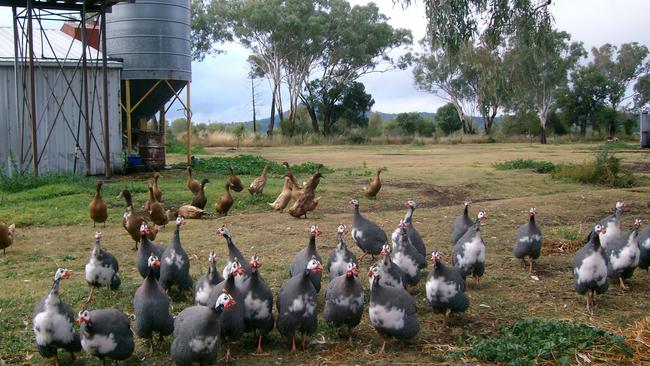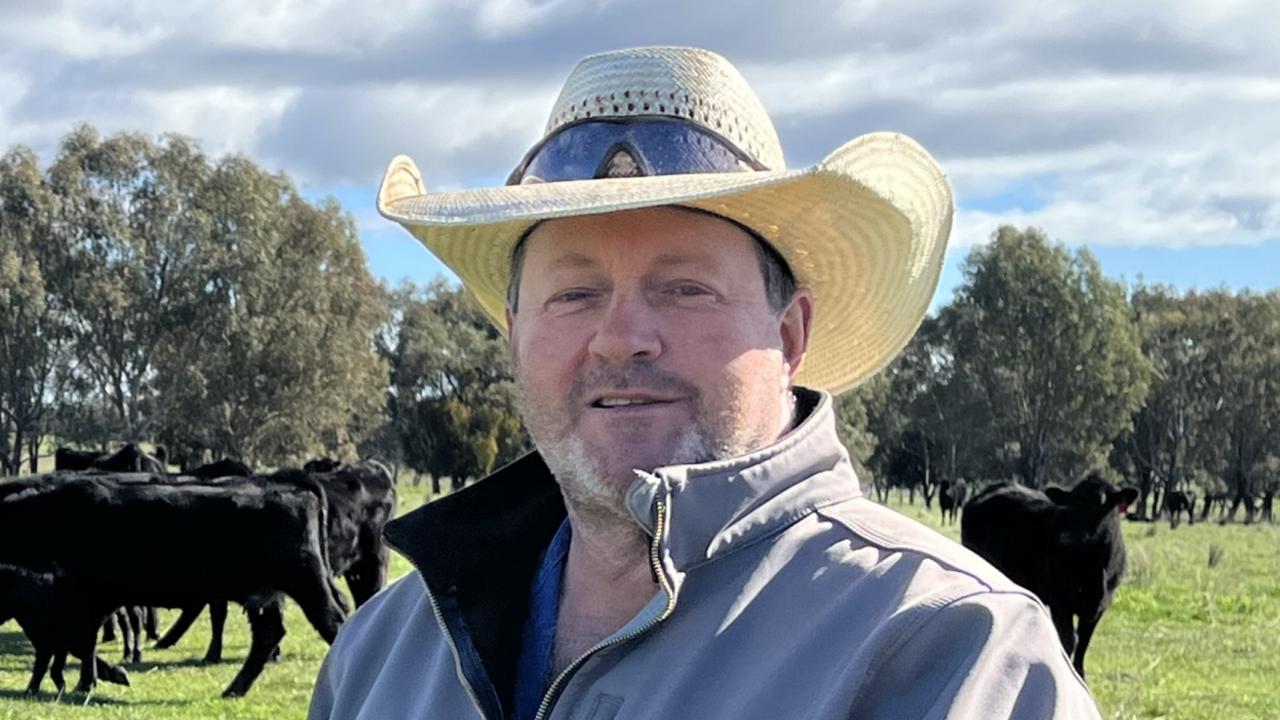Banyard Game Birds Farm, Queensland’s only quail meat producers
THE offer of a quail farm had a great incentive, writes SARAH HUDSON.

GUINEAFOWL chase each other across the grassy paddock, in bursts of territorial dominance.
In the shade of a gum, a duck stretches its neck, flaps its white wings.
Geese wander by, almost comedic with their roly-poly waddles.
But this is just the welcoming party at Erika and Clive Wylie’s Banyard Game Birds Farm at Pittsworth in southern Queensland, where quails are the core business.
“We have guineafowl — about 250 in all — to eat the bugs — they’re great at cleaning up after the quail,” Erika explains.
“The geese are our lawnmowers, and we only have about 16 of them.
“We used to have more ducks for commercial purposes but we’ve scaled down (to about 20) to focus on the quail.”
Since purchasing the established 30-year-old business in 2013, the Wylies — the only commercial quail meat producers in Queensland — have increased production to 150,000 birds a year (up from 80,000 from the previous owner).
Production is all managed on their 6ha property, from incubation, through to hatching, growing, processing in their on-site abattoir, packaging, marketing and distribution each week.
About 3000 birds are sold each week in sizes ranging from 170g to 195g, and either whole or butchered (such as butterflied) to Queensland restaurants and retail outlets.
Erika also sells quail eggs, as well as eggs from guineafowl and ducks, to select clients, while they also host occasional farm tours.
It speaks volumes about the couple’s success in the game bird industry that they were recently approached by Chinese landowners wanting to harness the Wylies’ knowledge. And so, with plans to spend more time in China, Erika says production may drop in coming years.
“For us there’s been no book on operating a quail farm, no blueprint, we’ve had to work it out for ourselves.”

OUTSIDE THE SQUARE
GIVEN Erika and Clive’s long and singular history in the agricultural industry, game birds seem an unusual choice of enterprise.
Erika grew up on a fine wool property in Tasmania and went on to study nursing, while Clive was raised on a pig farm in Beaudesert, Queensland, studying at agricultural college.
Clive has worked on project management and live cattle export and in places such as the Philippines, North Borneo as well as the Northern Territory and later Thailand.
In 1993 the Wylies established Inglewood Farms, the only organic free-range chicken business in Australia at the time, which sold to Coles and Woolworths.
After 16 years they sold out to RM Williams, but continued to manage land in the region.
In 2012, an industry colleague and the former owner of Banyard Game Birds approached Clive and Erika and sold them the business that was established by Keith and Maria Banyard three decades earlier.
“We’d known about this business for many years but we weren’t so much interested in the quail as the fact this property had a Safe Food Queensland accredited abattoir,” Erika said.
“If you grow livestock you have to find an abattoir in which to process it. In this country animals travel miles for processing. If you have an abattoir you can do anything.”
She says they continued the existing flock of quail, given 30 years of genetic breeding had gone into it, although they have been asked to farm other breeds such as spatchcock or even black silkies.
“Why get rid of those genetics — bred from Japanese blood lines, with an existing business and existing customers? It’s so much easier buying an existing business.
“We didn’t have such a love of chickens and quail are small, placid and easy to process — 55 days from egg to kill. And quail are a beautiful meat.”
FOWL BALL
ONCE they bought the farm, they upgraded infrastructure, adding water tanks, buying new incubators and hatchers, with infrastructure now including a grower shed, a breeder shed, an incubator and hatchery shed, as well as the abattoir.
The Wylies don’t buy in any new breeding stock, choosing from among the best birds each year for breeding purposes, with one cock to every four hens, which are kept for 10 months.
“We select for size, conformation, leg structure, good eyes and good head,” Erica said. “Whether it’s feathers or Hereford cattle or sheep, a lot of it is good stockmanship, which is hard to teach. You just know.”
Erika said the quail were not farmed organically because they wouldn’t fatten if left to wander. As well, because they are little, they are easy prey for predators.
Three times a week birds aged about 38 days are harvested and manually processing about 1000 each time.
Erika says with a lifetime career in a variety of agricultural industries, quail are one of the more high maintenance animals, yet a species she enjoys working alongside.


